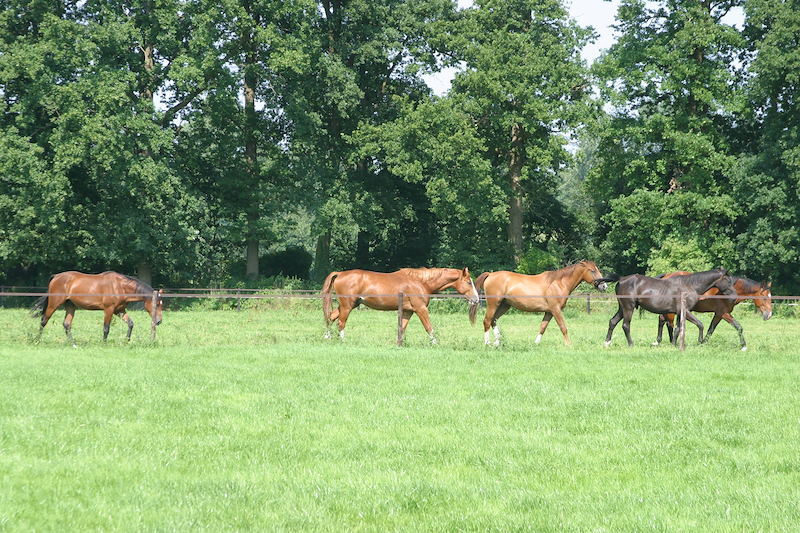Practice of Horse & Welfare
In every season, it is essential that horses not only continue to have sufficient free exercise every day, but also always have the opportunity for social interaction. The basic principle here is: think like a horse, not for a horse.
Although awareness of horse welfare is growing, there are still horses that do not get enough free exercise every day. Often, all sorts of arguments are given for this: too little space, too little time or unsuitable soil conditions, especially in winter. "A reason often given is that someone does not want to put his horse outside, because he will behave crazy and possibly get injured. That is a possibility, but he only does that if he is lacking that free exercise Animals that are prevented from doing something that is necessary for them will 'catch up' when they get the chance, which is called a rebound effect. That crazy behavior in the paddock or pasture indicates that they really needed time out of the stall. The chance of injury is much smaller if you just put the horse outside for a few hours every day. Then he will not be acting crazy and his overall physical condition will improve. In addition, research has shown that it is also cheaper - lower vet costs - and safer - less frustrating. An overall win-win situation, in other words."
Practice of Horse & Welfare
In practice, however, most horse owners in many parts of the world do not have the opportunity to put their horses out in the field or paddock 24/7. This is partly due to the soil conditions in, for example, autumn and winter: with the rain that falls, any meadow quickly turns into a mud pool. In addition to the damaged turf and the risk of injury, the horse owner also has to deal with the (im-) possibilities of offering the horses shelter and a dry place to stand and lie down. This is not so easy to achieve.
Machteld van Dierendonck does not see this as an obstacle to provide the horse with its essential needs: "As far as I am concerned, you don't necessarily have to keep horses as 'natural' as possible, but we should take into account that they can perform all those essential needs when they want to. A horse must be able to move freely for plenty of time every day and have contact with other horses of the same kind. It is difficult to say exactly how much or for how long. There are no studies that say: three hours and three quarters of an hour of free exercise per day is too little, but four hours is good. Besides, it's not just about exercise, but also about nutrition and social contact. So, unless there is a documented medical reason, make sure that all horses get at least 30 minutes of free exercise six days a week. To me, this is actually far too little, but I can see that this is how we help to convince people to allow horses that get no free exercise at all to be free for half an hour a day. I have already indicated that, as far as I am concerned, this minimum time will be extended in stages in the near future.
Horses should get at least four hours of free exercise per day in summer and at least two hours in winter. Why less in winter? Because there is less daylight and people like to be able to see what their horses are doing in the pasture or paddock. The soil conditions can be more difficult in winter as well. If it is longer than four hours, feeding must also be taken into account. And, do not put a horse out on its own without having another horse in sight, that makes little sense. It is very important to always have contact with other horses. No, unfortunately this does not always go well in a group, especially in stables with many changing in the herd of horses. I totally understand that, but it can also be done with one or two electric fences in between. Or create stables with individual paddocks attached, so that the horse can choose whether to stand outside or inside. Preferably next to horses that he likes. There are all kinds of possibilities. But as far as I am concerned, all horses should get a minimum number of hours of free exercise six days a week, with another horse in view.”























 KWPN Database
KWPN Database KWPN.tv
KWPN.tv KWPN Horses for Sale
KWPN Horses for Sale